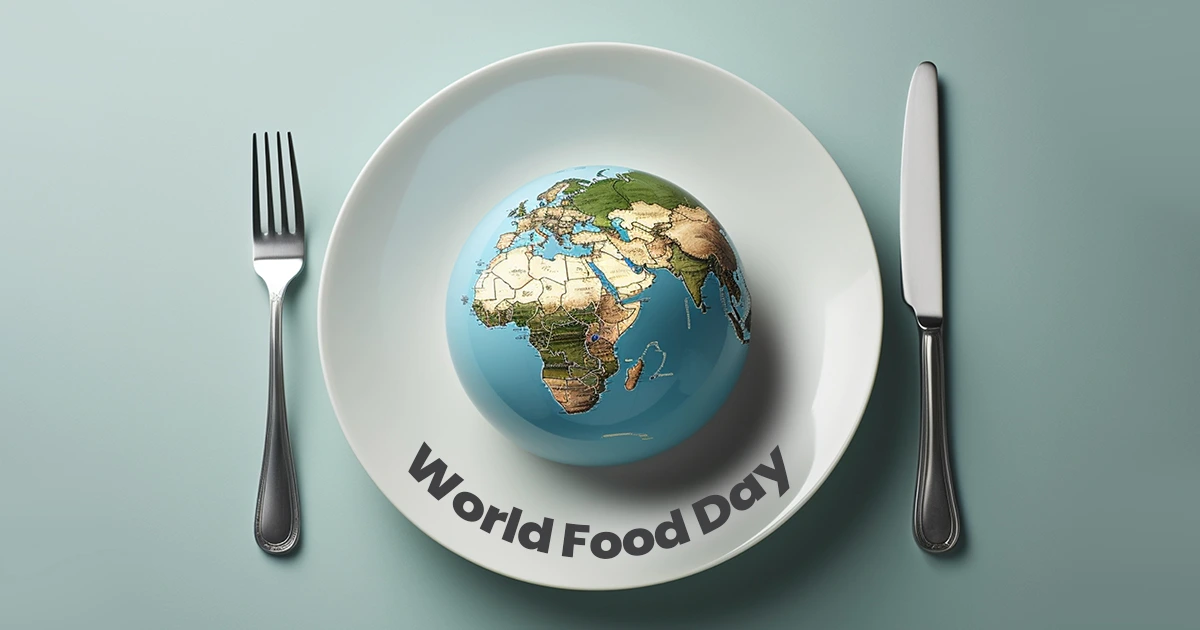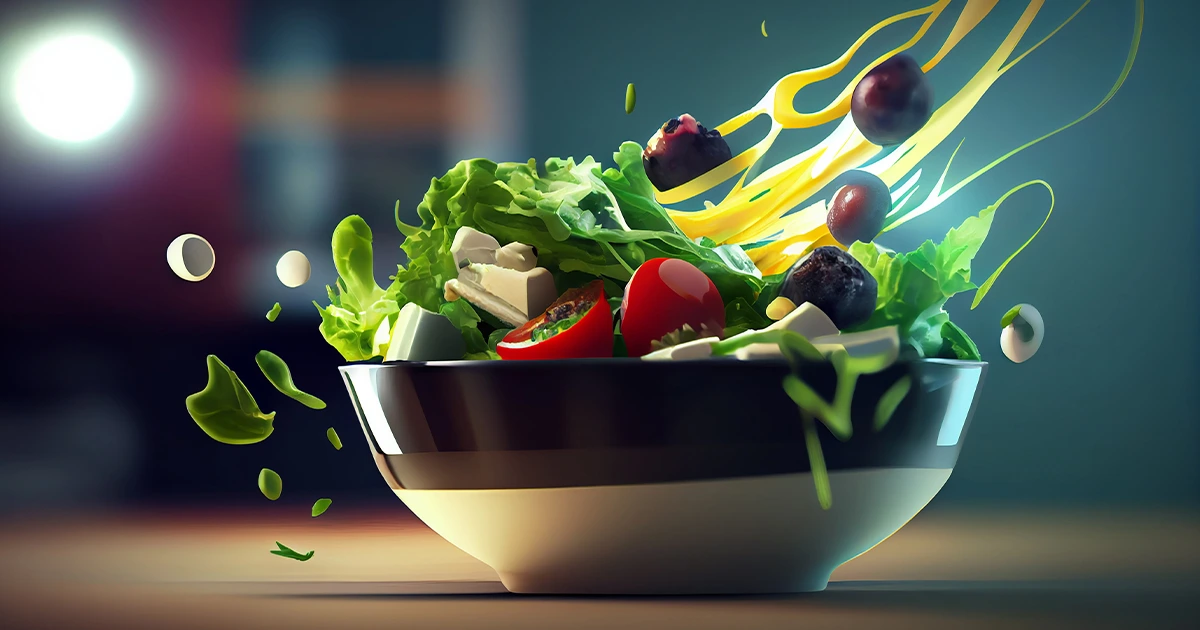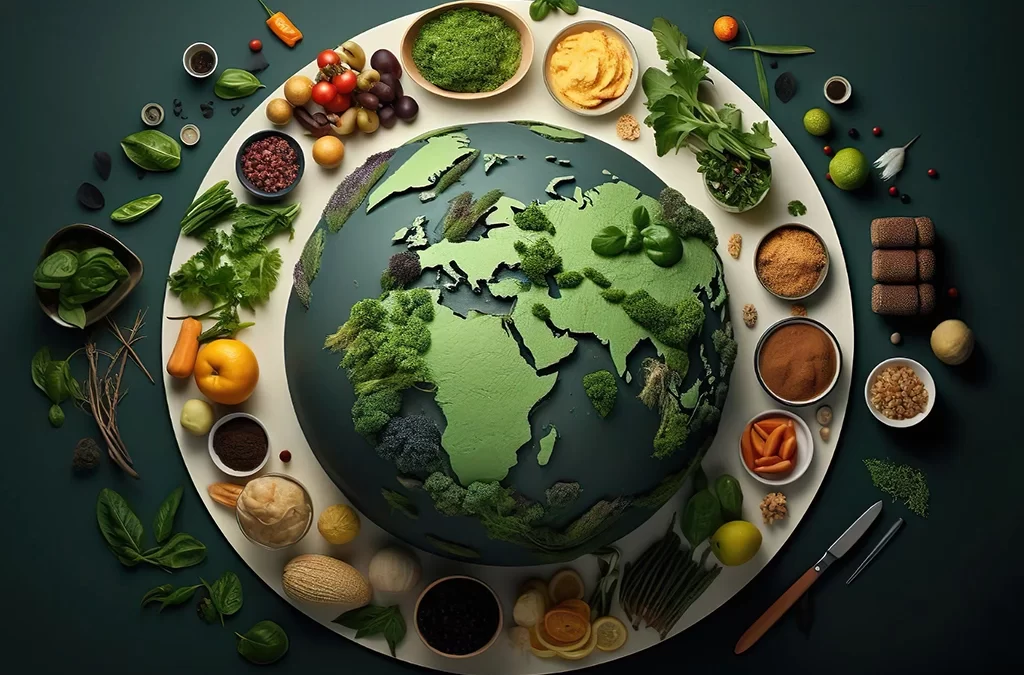Every year on October 16th, World Food Day gives us a unique chance to reflect on global food concerns and the innovations that are influencing the future of food production and consumption. This blog will look at the various innovative food technology advances that are taking the world by a culinary storm.
5 Global Innovations In The Food Industry To Reflect On, This World Food Day
This World Food Day, let’s reflect on the innovations of the food industry and the major global concerns of future food production and consumption.
1. AI-Powered Personalized Nutrition:
AI and machine learning are being used to build personalized nutrition programmes by analyzing people’ dietary choices, health problems, and genetic information. This innovation assists people in making better food choices and meeting their specific nutritional demands, resulting in better health results.
2. Food Preservation Innovations:
High-pressure processing (HPP), vacuum packaging, and controlled environment storage are among the advanced food preservation technologies that are extending the shelf life of food products while retaining their nutritional content and flavor. This awesome innovation holds the power to food waste, ensure food availability for extended periods, and thereby help combat the problem of global hunger.

3. Vertical Farming:
An efficient solution to food challenges for a rapidly growing urban population, vertical farming is poised to transform the future of food. Vertical farms utilize advanced hydroponic and aeroponic systems to grow crops in vertically stacked layers or trays. This approach reduces the need for large areas of land, pesticides, and excessive water usage. It also permits year-round cultivation and faster crop growth. Therefore, vertical farming not only minimizes the carbon footprint of food production but also ensures a steady and reliable food supply for urban populations.
4. 3D Printing of Food:
In recent years, the culinary industry has begun to embrace the power of 3D printing technology. Through this technology, chefs and food manufacturers can build intricate, personalized food patterns and structures. This breakthrough isn’t just for aesthetics, but it can also be used for solving challenges like food texture and nutrition, making it a potential solution for both fine dining and specialized dietary needs.
5. Chef Robots and Robot Kitchens:
In today’s automated world, robotics have made their way into the culinary sphere, revolutionizing how food is prepared. Chef robots and robot kitchens are capable of doing a wide range of cooking operations, including chopping, grilling, plating, and even baking. They guarantee consistent, high-quality food by providing exact control over cooking times and temperatures. These advancements are especially useful in fast-food and restaurant settings, where speed and consistency are critical. Chef robots have the ability to save labor costs and increase kitchen efficiency while keeping human chefs’ creativity and personal touch in recipe formulation and menu planning. As this technology advances, it has the potential to alter our approach to cooking and dining experiences.
Zoop: Revolutionizing Train Travel Dining in India
Zoop stands out as a spectacular solution at the junction of food and travel in the enormous universe of food technology developments. Zoop has transformed the way food is served to Indian railway travelers as the official e-catering partner of the Indian Railway Catering and Tourism Corporation (IRCTC).
Zoop’s online delivery platform provides a convenient means for ordering hygienic and reliable meals on train, which are delivered straight to the passenger’s seat, at their preferred railway station. All the restaurants on Zoop are FSSAI-approved, ensuring safe and high-quality meals. What makes Zoop even more special is its wide range of cuisines, which includes everything from regional Indian specialties to foreign delicacies.

Zoop’s ability to meet various dietary requirements, including the provision for Jain food, is one of its many advantages in India to reflect on. Zoop can become your reliable travel buddy, whether you are a solo traveler, or part of a big group. Ordering meals on train using Zoop is a breeze, and can be easily done through Zoop’s website, Zoop App from Google Playstore or Apple App store, WhatsApp at +91 7042062070 to order food in train, Instagram (ping @zoopfood to get started), and even Google Chat (Simply Google search “Zoop” or type “Order food in train with Zoop” on Google to get started).
Conclusion
The cutting-edge food technologies featured in this blog on the occassion of World Food Day are impacting the future of food production and consumption, as well as tackling major global issues related to sustainability, food waste, and culinary inventiveness. Furthermore, platforms like Zoop are transforming the dining experience during railway travel in India by providing convenient, affordable and diverse food alternatives to meet the demands of passengers, making travel more fun and convenient.



